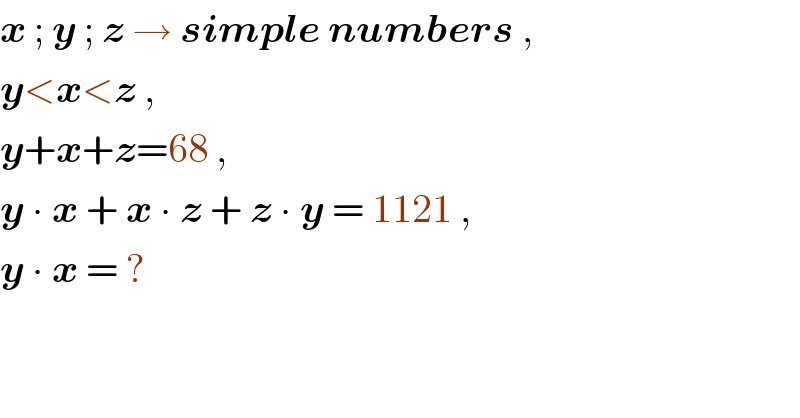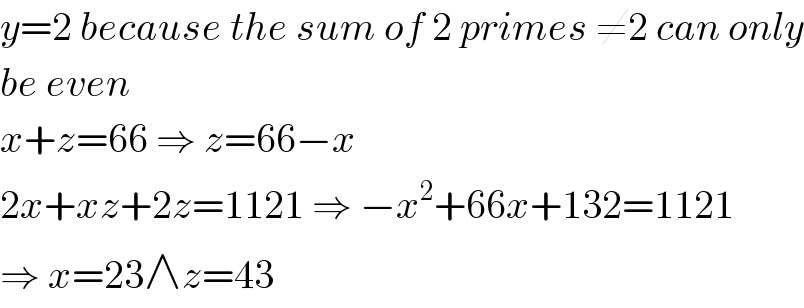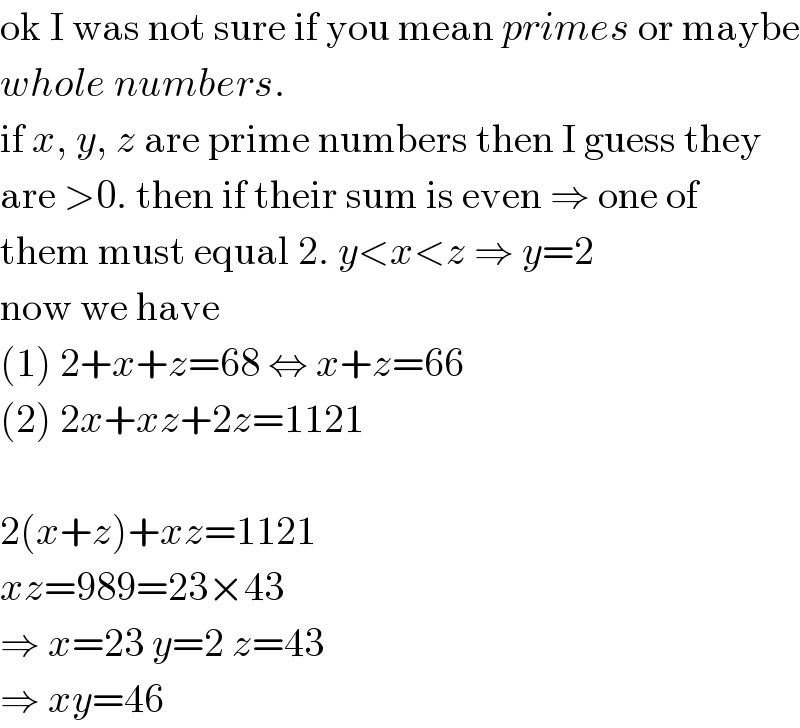
Question and Answers Forum
Question Number 125743 by MathSh last updated on 13/Dec/20

Commented byMJS_new last updated on 13/Dec/20

Commented byMathSh last updated on 13/Dec/20

Commented byMJS_new last updated on 13/Dec/20

Commented byMathSh last updated on 13/Dec/20

Commented byHer_Majesty last updated on 13/Dec/20

Commented byMJS_new last updated on 13/Dec/20

Commented byMathSh last updated on 13/Dec/20

